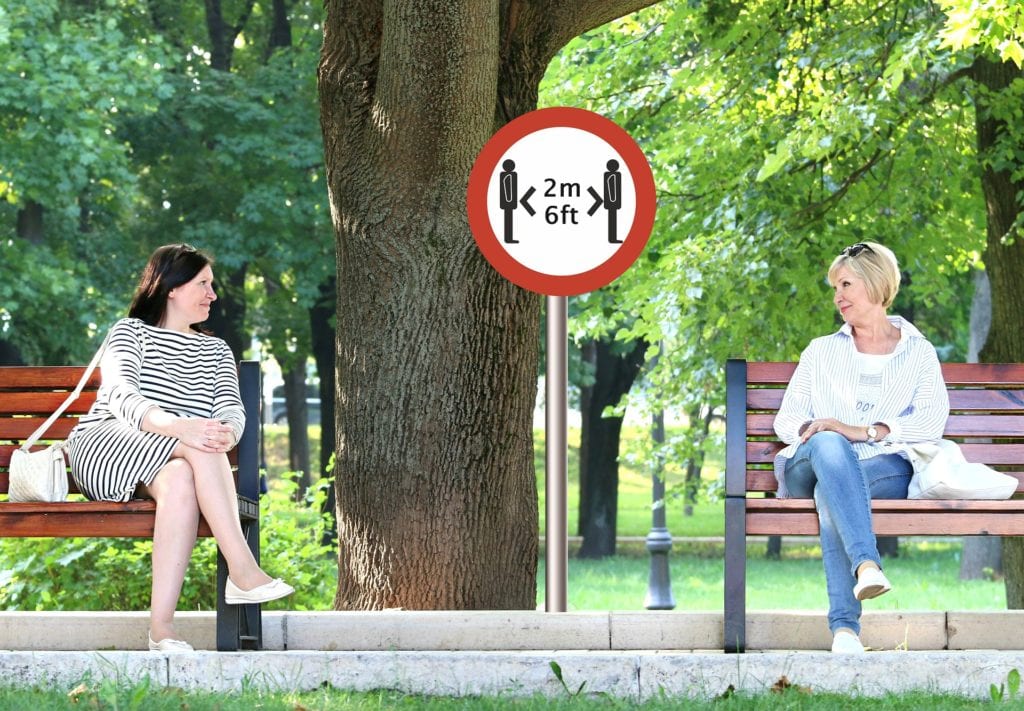Today I’m honored to re-publish a blog from my good friend and fellow Baby Boomer, Lindsay Wagner, RN. In her business AuthentiCore, Lindsay focuses on health and vibrancy of the whole person with an emphasis on the mental and emotional elements. Here she describes the critical role of human touch, and how to find it—even in today’s world of social distancing. Take it away, Linds!
“As humans, we are driven to connect. We have a fundamental motivation to belong,” said Theresa DiDonato, an associate professor of psychology at Loyola University. The simple act of being with people can help boost self-esteem and provide a sense of meaning and purpose, according to DiDonato.
We also have a need to touch and be touched. And unless you are living with people and have created “a bubble of connection” already, touching is really not something that’s widely available. In my experience, as limited and awkward as the elbow bump is, it’s actually kind of satisfying to feel that split second of connection with another’s flesh. And if I take a second to build up my anticipation right before the bump, I can almost make it feel electric! That’s how touch-deprived some of us are these days. And folks that do have a spouse, partner, or child at home, talk about how deeply grateful they are to have someone they can hold and squeeze from time to time—and be squeezed back.
Research tells us it is vital to preserve human touch in order for us truly to thrive. Physical touch activates the part of the brain linked to feelings of reward and compassion. The decrease or absence of touch leads to greater violence, because touch helps us bond to one another. Physical touch and hugs have been shown to strengthen the immune system. Specifically, the gentle pressure on the sternum during a hug and the emotional charge it creates activates the Solar Plexus Chakra. This stimulates the thymus gland, which regulates and balances the body’s production of white blood cells, keeping you healthy and disease-free. How about that for great science?

We hear so much about taking this time to “be creative.” And even though I don’t think creativity is my strongest suit in the pack, I have had fun thinking ENTIRELY out of the box about ways we can stay emotionally and mentally healthy even though we are socially distancing—and wearing a literal barrier over our faces (some of us are, anyway).
Christine Carter, a sociologist and life coach based in the San Francisco Bay Area, said, “One of my daughters had a picnic birthday party where every person brought a blanket that was big enough. They spaced them all out and were able to do it in a way where everybody was around the birthday girl. She said it was actually really fun and something that they would always remember.”
I watched a PBS special on a company that is helping schools create OUTDOOR spaces for teaching children this year. Since most schools don’t have enough indoor space to accommodate crowded classrooms, their emphasis is on bringing the classroom outside. Reportedly, this is not the first time these kinds of classrooms have been set up—during other pandemics, children, even in cold or wet climates, have been bundled up, protected by overhead coverings above them, and all got down to the business of learning AND socializing outside. Socialization is critical for the personal connections that fosters resilience.
One suggestion for all of us adults is to “put on our camp counselor hat” and come up with fun outside ideas to keep us moving forward. Here’s a short list of outdoor activities that keep us socializing, and getting some life-saving exercise:
- Social distancing hikes
- Riding scooters and bikes
- Hopscotch
- Sprinkler play
- Backyard water slides
- Painting classes on easels
- Outdoor movie night
- Back yard concerts, playing music
- Rollerblading
- Kayaking, boating, sailing
- Fishing
- Golfing
- Fitness classes outside
- Communal backyard cookouts for adults – bring your grills to the yard, cook, eat, and chat safely
What all of these social-distancing ideas have in common is that they rely on innovation in order to help us socialize safely amid the ongoing pandemic. Being outside offers other benefits, too. It gives us an emotional boost and can help us feel less tense, stressed, angry or depressed.
You can find more of Lindsay’s heartfelt tips at: www.authenticore.com. And for additional ideas to improve your physical wellbeing this summer, give me a call.

